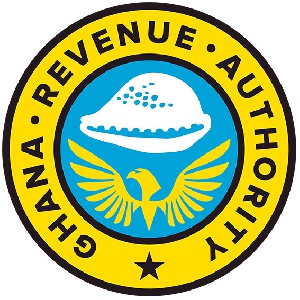A new study on citizens’ perception on tax collection and its utilisation has found that most taxpayers hardly trust the tax collectors, with more than 80 per cent of respondents saying that they perceive some staff of the Ghana Revenue Authority (GRA) to be corrupt and culprits of tax evasion.
The Afrobarometer survey, which sampled the views of 2,400 Ghanaians, also showed that another 34 per cent of citizens thought that “most” or “all” the tax collectors were involved in graft.
The data was gathered in October 2019 and a report on it released on April 7 this year as part of the Afrobarometer survey under the Centre for Democratic Development (CDD) Ghana.
It showed that only four in 10 citizens (39 per cent) trusted the tax authorities while people were almost three times likely to say they did not trust the GRA “at all.”
Another 10 per cent of the citizens said they trusted the authority, according to the report, which warned that “such a low level of trust is likely to hamper compliance with tax laws”.
The findings came at a time when the GRA was stepping up efforts to increase revenue collections to help close the fiscal deficit gap, which is estimated to end this year at 9.5 per cent of gross domestic product (GDP), and moderate the debt burden, which ended last year at GHS296.1 billion, equivalent to 76.1 per cent of GDP.
In the 2021 Budget Statement, the government estimated that total revenue and grants would rise by about 31.5 per cent to GHS72.45 billion this year compared to an average growth rate of about 16.7 per cent per annum.
Implications
A Research Analyst at the CDD-Ghana, Mr Gilfred Asiamah, told the Graphic Business on April 12 that the findings of the survey showed that the GRA would not succeed in increasing revenue mobilisation if it did not purge itself of corruption perceptions.
“If you want to intensify domestic revenue mobilisation, then GRA has to be efficient and accountable,” Mr Asiamah said.
“People need to trust them to be able to comply voluntarily and it is only when voluntary compliance is high that tax collection can also go up,” he said.
Over the years, the government has pointed to voluntary compliance as the biggest booster to increase revenue generations, citing the cost involved in getting people to comply and the lack of capacity of the GRA to do so.
But in spite of various efforts to sanitise the GRA, improve tax compliance and increase domestic revenue mobilisations, collections have lagged behind targets, with the authority missing most of its annual yield targets.
This has placed Ghana among countries with a lower ratio of tax collection to GDP of around 12 per cent, compared to the Sub-Saharan Africa average of around 17 per cent.
“When people do not trust the collectors, they hardly pay and it means the GRA has to intensify efforts to enforce compliance. That comes at a cost and also reduces the possibility of higher revenue mobilisation,” Mr Asiamah added.
Utilisation of revenues
Beyond the issue of trust, the Research Analyst at CDD-Ghana said the reasons for low collections could also be blamed on the public’s perception of how the funds were used.
He said the survey further found that while people did not mind paying taxes, they were concerned about how the resources were used, explaining perceptions of improper utilisation of taxes dampened the citizens’ morale to pay.
“For example, when people pay street light levy but walk in darkness, they begin to question the relevance of that tax,” he said.
The survey found that most Ghanaians endorsed taxation.
“But they also say it is difficult to find out what taxes they owe and how tax revenues are used, and they see corruption in the GRA and tax evasion among their peers as widespread.”
“Ghanaians overwhelmingly (79 per cent) endorse the government’s right to make people pay taxes. But large majorities (61 per cent) also say it is difficult to find out what taxes they are supposed to pay,” it said.
It added that another 70 per cent said they found it difficult to know how the government used tax revenues.
Impact of higher revenues
In response to Graphic Business’ questions, the Resident Representative of the International Monetary Fund (IMF), Dr Albert Touna Mama, said the COVID-19 pandemic had revealed the need for countries to increase their mobilisation.
He said the crisis had showed that countries with greater capacity to collect revenues domestically were the countries better placed to support health systems and protect people from losing jobs and incomes, and sparing companies from bankruptcies.
“For example, advanced economies have been able to run fiscal deficit at 13.3 per cent of GDP in 2020, with government revenue at 34.8 per cent of GDP in 2020,” he said.
Just like the findings of the Afrobarometer survey, Dr Touna Mama said it was imperative that the country plugged revenue leakages and expanded to help increase revenues.
Business News of Wednesday, 14 April 2021
Source: goldstreetbusiness.com

















